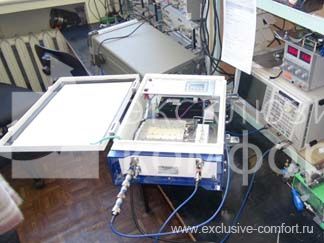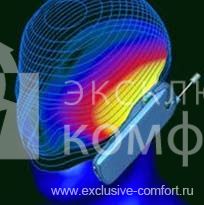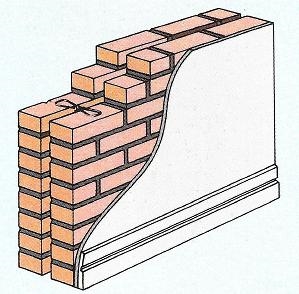The main criteria for choosing an operator cellular communication from the point of view of the end user, in most cases, these are tariffs, coverage area and quality of the cellular network, availability of services provided. The main technical challenges for operators are:
- Increased coverage area;
- Providing a high level of quality voice services and data transfer.
Resolving quality issues and strengthening the cellular signal is carried out mainly by increasing the capacity of networks, for example, installing new base stations, as well as carrying out work to optimize network parameters.
But what to do if an ordinary subscriber finds himself out of reach of the operator’s base station? How often have you had to go outside from your office or home to make an important call? And the reason for this is poor communication due to incomplete coverage of the radio network mobile operators.
One of the most available ways To improve the cellular network signal for end users, install a cellular amplifier.
The main purpose of these amplifiers or, as they are also called, cellular repeaters is to improve and expand the coverage area of cellular communications in those premises where the signal level does not allow making calls. For example, these are semi-basement offices, cafes and restaurants, entire business centers, country houses, underground parking lots, etc.
The operating principle is to amplify the radio signal received from the base station. That is, the repeater receives a signal from the base station, amplifies it and radiates it towards subscribers. In the same way it receives a signal from mobile phone and transmits towards the base station. In this case, two antennas are used for transmission: donor - directed towards the base station and service - directed towards subscribers and is a regular panel or whip antenna, which are used at base stations.
After installing such a system, the subscriber receives 100% high-quality communication in his premises. In this case, the amplifier cellular signal does not impose any restrictions on the number of simultaneously talking subscribers and solves the problem of poor communication of all cellular operators that provide communication services in a given region.
The main, and in fact the only manufacturer of such equipment in Russia is Moscow Microwaves CJSC. The company was founded in 1991 by specialists from the research institute and its main focus today is the production of cellular signal amplifiers under the Picocell brand.
In 2010, over 5,000 units of this product were sold and every year this figure increases by 20%. The buyers are both the cellular operators themselves and private owners of country houses, apartments, owners of restaurants, cafes in whose premises poor communication has become one of the main problems.


For installation cellular repeater You must contact official certified dealers who will expertly select the necessary equipment for you and install it. If installed incorrectly, the repeater may radiate interference to nearby cell phones. base stations. Which will ultimately negatively affect the quality of the network in your area.
 Contrary to the general stereotype, these repeaters not only strengthen the signal, but also reduce the level of radiation exposure from your own mobile phones. After all, when the subscriber is at a point of uncertain reception of a cellular signal or its absence, the phone, trying to “reach” the nearest base station, begins to emit even more power. To confirm this fact, many people notice that the battery uses up its own charge faster. In the technical data sheet of any cell phone there is a parameter - “maximum radiated power” and it ranges from 1500 to 2000 mW. And in the mode of reliable signal reception (all 5 “sticks”) the phone emits up to 100 mW. In turn, a regular repeater for a small office or Vacation home emits no more than 320 mW, while being at a sufficient distance from the subscriber.
Contrary to the general stereotype, these repeaters not only strengthen the signal, but also reduce the level of radiation exposure from your own mobile phones. After all, when the subscriber is at a point of uncertain reception of a cellular signal or its absence, the phone, trying to “reach” the nearest base station, begins to emit even more power. To confirm this fact, many people notice that the battery uses up its own charge faster. In the technical data sheet of any cell phone there is a parameter - “maximum radiated power” and it ranges from 1500 to 2000 mW. And in the mode of reliable signal reception (all 5 “sticks”) the phone emits up to 100 mW. In turn, a regular repeater for a small office or Vacation home emits no more than 320 mW, while being at a sufficient distance from the subscriber.
Thus, by purchasing a cellular signal amplifier, you take care of your health twice - you protect yourself from excessive electromagnetic radiation and maintain emotional balance from poor-quality communication.
Are you having problems with your mobile signal indoors? Here are five factors that can cause a building's signal strength to drop, and how to combat them.
1) Distance from operator base station
While in a car and leaving the range of the repeater, or finding yourself in a point that is outside the signal coverage area, you may experience problems maintaining a conversation on your mobile phone due to poor reception. The right decision would be to purchase one that receives a remote signal from you and amplifies it.
2) Trees (especially in summer when they are covered with foliage), hills
Trees can also block the signal path, especially in the summer when they are covered with foliage. A solution might be to trim the branches, but this is an expensive undertaking and usually requires a permit. The simplest solution is to install a repeater that amplifies the weak mobile phone signal indoors and ensures stable operation throughout the year. The same repeater is the best option and if the signal path is blocked by a hill.
3) Walls (brick has a strong effect, aluminized insulation has an even stronger effect), double-glazed windows

Walls, especially brick walls, are an obstacle to mobile phone signals. This is one of the most serious problems for mobile communications, especially in high-rise areas. A repeater located outside the home does an excellent job of in this case.
4) Small mobile phone antenna (weak emitter)

The small antenna allows you to carry your mobile phone with you and slightly boosts the signal. However, for many conditions it is not powerful enough, for example, somewhere far from the city or even at home, behind a wall. The repeater uses an external antenna with high level amplification located on the roof is much more powerful than a conventional antenna.
5) Too many users are connected to one repeater (this happens most often in large cities on 3G networks)

Mobile line congestion is a common problem in large cities, with the obvious cause being a large number of users connected to the same relay tower. The repeater communicates with several mobile towers and, if the nearest one is overloaded, the operator switches your mobile phone to the tower that is working with less load. Your mobile phone typically doesn't have enough power to choose from multiple towers during normal use.
About ways to solve the problem of poor cellular signal.
Instructions
The quality of data transmission carried out over a particular channel may deteriorate due to the fault of the user or operator, or for reasons beyond their control. A very common mistake made by subscribers of cellular operators is using a mobile phone in a basement, underground passage, or elevator with metal walls. Also, we should not forget that many residential buildings are built of reinforced concrete. This material shields electromagnetic radiation to a somewhat lesser extent - in such a house, sometimes it is enough to move with the device only half a meter for the reception to improve dramatically. In addition, in a reinforced concrete house it is difficult to receive UHF TV channels with an indoor antenna - in this case it must be brought to the window.
The passage of radio waves in different ranges is influenced by weather conditions and even the time of day. This influence is mainly noticeable on the broadcasting bands - DV, SV, HF, and to a much lesser extent - on VHF. Solar radiation affects the ionosphere, which, under its influence, begins to reflect radio waves differently. Cellular connection works in much more high frequency range- centimeter. Here the influence of weather is not clearly expressed, however, in some cases in sunny weather the quality of communication drops noticeably. In this case, the ionosphere has nothing to do with it: the devices respond to interference created by the sun itself, because it emits not only visible light. It should also be remembered that radiation in these ranges travels in a straight line, similar to light, and can be blocked, for example, by buildings.
Much depends on the quality of the equipment itself. Radios and televisions have different sensitivities, so two devices of different brands, being nearby, can receive a signal from the same transmitter with different quality. The parameters of the radio modules of cell phones and 3G modems are also different, and the same applies to the antennas built into them.
Almost all consumer electronics these days are equipped with switching power supplies. The interference from them affects mainly low-frequency ranges. For this reason, reception on long, medium and short waves in the city is difficult, but still possible if you use good external antenna. For the operation of VHF receivers, televisions and cellular communications impulse blocks nutrition has almost no effect.
Wired and cellular telephone connection, as well as Internet access is provided via so-called dial-up channels. This means that with each connection, a chain of nodes that are free in this moment. Sometimes it is enough to forcefully terminate the connection and re-establish it in order to connection improved. In some smartphones, in particular on the Symbian platform, there is a so-called “Connection Manager” (in older versions - “Connection Manager”) to forcefully terminate the Internet connection.
When accessing the Internet via a cellular channel, another factor is added to the above factor - changing base stations. Due to the continuous change in reception conditions, even a fixed telephone can periodically switch from one station to another - the one whose signal is stronger at the moment. However, if at one of the stations to which the switch was made recently, the equipment is faulty or overloaded, the restoration of the Internet connection may not occur immediately. This situation occurs especially often if the switch is made from a station that supports 3G to a station that is incompatible with this standard, or vice versa. Sometimes there are malfunctions of base stations that prevent connection to the Internet at all, while voice connection works fine. Sometimes it’s enough to call the operator’s support service, say that your Internet is not working, tell your location, and the problem will soon be fixed.
According to statistics over the last two decades, the number of users mobile communications increased significantly. Most of the planet (about 80%) is within the coverage area of various mobile operators. The demand for their services is constantly growing, which is why modern technologies are somewhat behind the needs of consumers.
The main problem that cellular communication companies have not been able to solve is “dead” zones. It is still relevant and no one has been able to come up with a radical solution that could help get rid of this problem forever. However, everything is in the hands of consumers. More recently, new devices have appeared - a gsm repeater, which allows for reliable communication in areas with poor coverage.
Which gsm repeater is the most popular?
The devices manufactured by the company are in greatest demand Picocell. Their use is justified economically, because losses from lack of communication can amount to significant amounts. It is useless to rely on cellular operators and wait until they install additional base stations. It is much more profitable to take care of this yourself by installing amplification equipment.
Most consumers, encountering difficulties when communicating over cell phone, strive to take some action: recharge the phone, try to climb to a higher place. All these measures are in most cases ineffective, since it is often impossible to talk precisely because of the weak signal.

A high-quality and correctly installed gsm repeater will increase their power several times. The principle of operation of the device is simple: using outdoor antennarepeater receives a weak signal, amplifies its power many times over, then relays it within its coverage area. Using cell phone boosters There are also positive effects: increased work duration batteries without recharging, reducing harmful radiation, the source of which is a mobile phone.
Of course, there are other methods of strengthening communication, for example, changing the operator or making sure that the mobile phone is always in an upright position. But in the vast majority of cases it only helps installation of a cellular amplifier- an effective method that has helped many users. Thanks to this method, thousands of Russian residents have the opportunity to communicate freely without experiencing grief due to poor communication quality. A lasting connection has turned from a dream into a reality.
